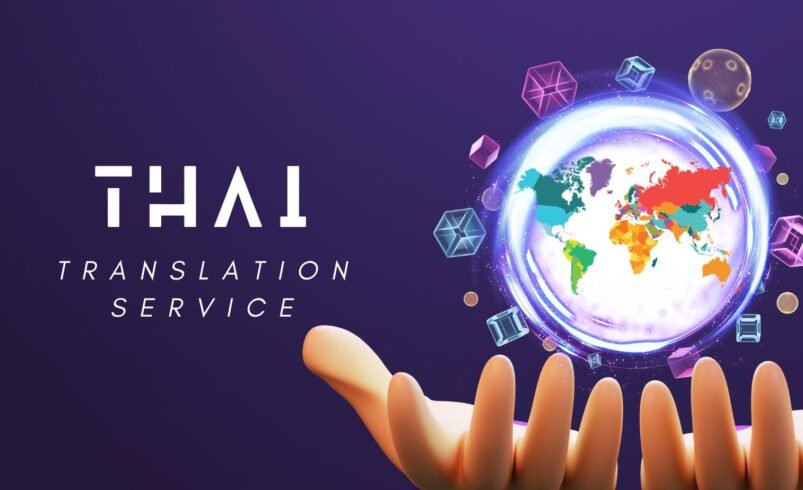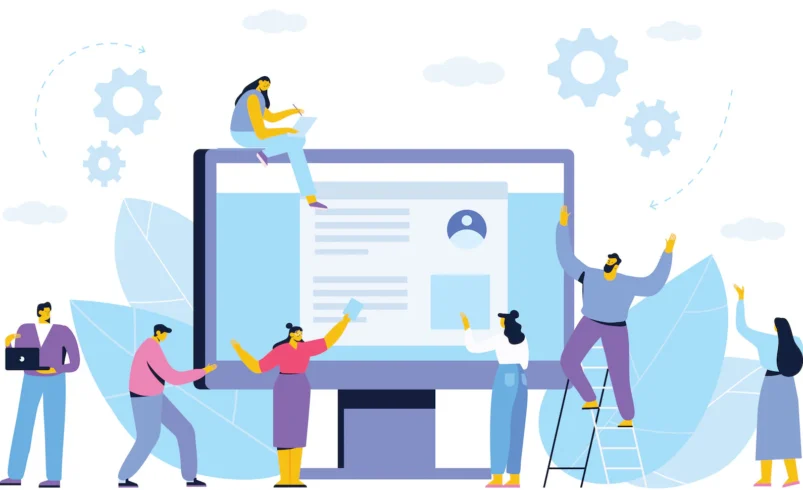The Role of Japanese Interpreters & Thai Translation Services

Effective communication within today’s healthcare systems is a matter of life and death. Physicians, patients, and care staff rely on accurate information sharing to make timely and informed choices. For those who are Japanese or Thai speakers and obtain medical treatment overseas, language can hinder diagnosis, result in severe miscommunications, or direct to inaccurate treatment. And that is where Japanese interpreting services and a reliable Thai translation agency come in as essential allies to provide safe, welcoming care. As healthcare systems expand and treat more globally diverse populations, language access has grown from a useful service to an absolute necessity.
This article discusses how language services in Japanese and Thai enable effective patient care, diminish clinical risks, and enhance overall patient experience in the healthcare industry.
The Challenge of Language Barriers in Healthcare
When there is no shared language that patients and healthcare providers use, the scope for medical mistakes increases rapidly. These errors may entail improper diagnosis, wrong administration of the medication, and procedure problems, some of them fatal.
Language assistance is still becoming highly required in countries where the Japanese and Thai nationals or tourists, long time residents, and expatriates live. Patients without professional interpreters or sufficiently translated materials often rely on their family members or untrained peers for communication. This is compromised for accuracy and confidential medical information and may misinform care and cause patient distress.
Why Language Accuracy Matters in Healthcare
Medical communication, especially in clinical and hospital settings, is highly complex and filled with jargon and nuanced terminology. It does not cover translating signs or symptoms, test results, treatment plans, or consent forms. Such translation involves thorough specialized knowledge of medical terminology and healthcare protocols. The translator must be able in both source and target languages, and medical terminology and patient safety protocols. During general Thai or Japanese translation, translation often becomes hazy or the medical information becomes misinterpreted. Thus, machine translation or general language skills must never be relied on in medical contexts. Only professionals can guarantee the accuracy of communication so that patients and providers are able to understand each other completely and make sound decisions with confidence.
The Role of Japanese Interpreter Services
Japanese patients face unique hurdles within foreign healthcare systems. Japanese culture does not allow for the proper and open expression of symptoms, diagnoses, and treatment options. Professional interpreters impart more than mere words and play a role in tying cultures together so that there can be a shared understanding. Through the aid of Japanese interpreter services, information flows nonstop between the medical personnel and the patients, while all relevant technical jargon is transformed in a way that respects the linguistic and cultural norms. It is not the interpreter who is excellent but rather the scope of his interpretation that manages to secure informed consent as an ethical and legal ground of medical practice into something much better. He understands non-verbal language, tone of voice, and context input within a sensitive clinical environment such as surgery, evaluations for mental health, or care near the end of life.
How a Thai Translation Company Supports Patient Care
Thailand is known for an excellent health sector with good services and affordable rates, making it attractive to both foreigners and locals. Also, language services are capable of helping foreign residents speak Thai effectively and access the foreign healthcare systems.
A reputable Thai translation company enhances clinical accuracy and improves the patient experience by carefully translating essential documents such as discharge summaries, medical reports, prescriptions, and diagnostic findings.
Translation of patient education documents will ensure cultural appropriateness and readability. Further, Thai translation experts also work in the facilitation of clinical trials and research by translating regulatory and technical documents. They help medical professionals meet multilingual access requirements, thus reducing misunderstanding, avoiding errors, and building trust among patients who speak Thai.
Legal and Ethical Responsibility of Healthcare Providers
In several jurisdictions, hospitals and other health care facilities are legally obliged to provide access to language services to persons with limited English proficiency. These laws do not merely require compliance; they also entail ethical requirements, which have a bearing on patient safety and rights. Inaccurate interpreting or translation services offered by health care institutions open avenues of risk for the patient, poor reputation of the institutions, and possible legal action. Certified interpreter services will enable health care institutions to comply with the language access regulations and offer equitable care.
Future Trends: Technology and Human Expertise
While advances in translation technology, particularly in telemedicine, have improved some elements of language support to become more efficient, they are unable to substitute the subtle expertise and understanding human professionals deliver in high-stakes clinical settings.
Voice recognition programs and AI-based translation programs can help with some tedious administrative work, but actual patient conversations, diagnosing, and life-or-death discussions require human intervention. The future of healthcare language services can reside in hybrid models that will blend the speed and scope of technology with the accuracy and tact of trained translators and interpreters. Increasing demand can make formal certification programs and medical language specialization increasingly vital to ensuring high standards in multilingual healthcare provision.
Final Thoughts
In a healthcare system that is increasingly caring for a global community, language services are not an afterthought; they are an element of quality and safety. Interpreter services and the skilled work of translation companies are much more than word conversion. Clinical discussions are a means to understanding, trust, and dignity. To disclose to health-care practitioners that hiring trained language professionals is more than fulfilling a regulatory criterion is to respect every patient with a chance of receiving care that is dignified, accurate, and compassionate, irrespective of what language they speak.




